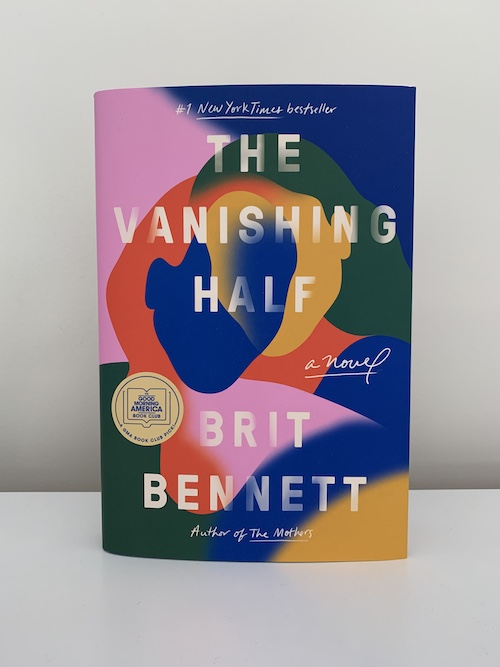
The Vignes sisters are the talk of the town: good family, attractive. Stella is a helper. She’s smart, quiet, and going places. Desiree is cheeky and sure of herself. They are dedicated to each other, and one day disappear.
The morning one of the lost twins returned to Mallard, Lou LeBon ran to the diner to break the news, and even now, many years later, everyone remembers the shock of sweaty Lou pushing through the glass doors, chest heaving, neckline darkened by his own effort.
first line, chapter one, The Vanishing Half
Mallard (fictional but based on real places) is a strange town that’s not on any maps. It was founded by Alphonse Decuir in 1848 with the sole purpose of being a place “for men like him, who would never be accepted as white but refused to be treated like Negroes. ” It’s a town that values lightness. And the Vignes twins are Decuir’s great-great-great-granddaughters. Creamy skinned, hazel eyes, wavy hair. He’d be very proud.
I heard Brit Bennett on CBC talking about the novel, and race, identity, and the re-invention of self. It was a super interesting conversation. In the novel, the Vignes twins run away. Desiree because she’s always wanted to get out of small town Mallard. And Stella because her mother has pulled her out of school to clean houses and help with the family’s finances. For both girls, Mallard becomes an unacceptable place to be. The split between the twins happens in New Orleans when Stella goes to work, passing as white, and then marries her boss. She leaves Desiree in the dark for decades. Meanwhile Desiree has a daughter Jude, is forced to flee an abusive marriage, and settles back in Mallard, with her daughter is shunned for her skin colour.
I recently read an article “So What’s the Difference Between Race and Ethnicity?” with Jennifer DeVere Brody, Stanford University’s Director of the Center for Comparative Studies in Race & Ethnicity. To understand the terms, you need to understand how they were historically used, and that these concepts have changed over time, but that both terms are about people’s relationship to power. Brit Bennett exposes all sorts of power struggles in this novel.
There are so many layers to this story, and to the stories of Stella and Desiree’s daughters. What it’s like to grow up white and privileged vs. black and in a town that values lightness. What it’s like to be a woman in the 60s, 70s, 80s. What beliefs we inherit and what acceptance or denial does to our identity.
Brit Bennett is an amazing writer crafting a novel about racism, politics, and all the ways we corrupt our society. The Vanishing Half is a worthwhile read.